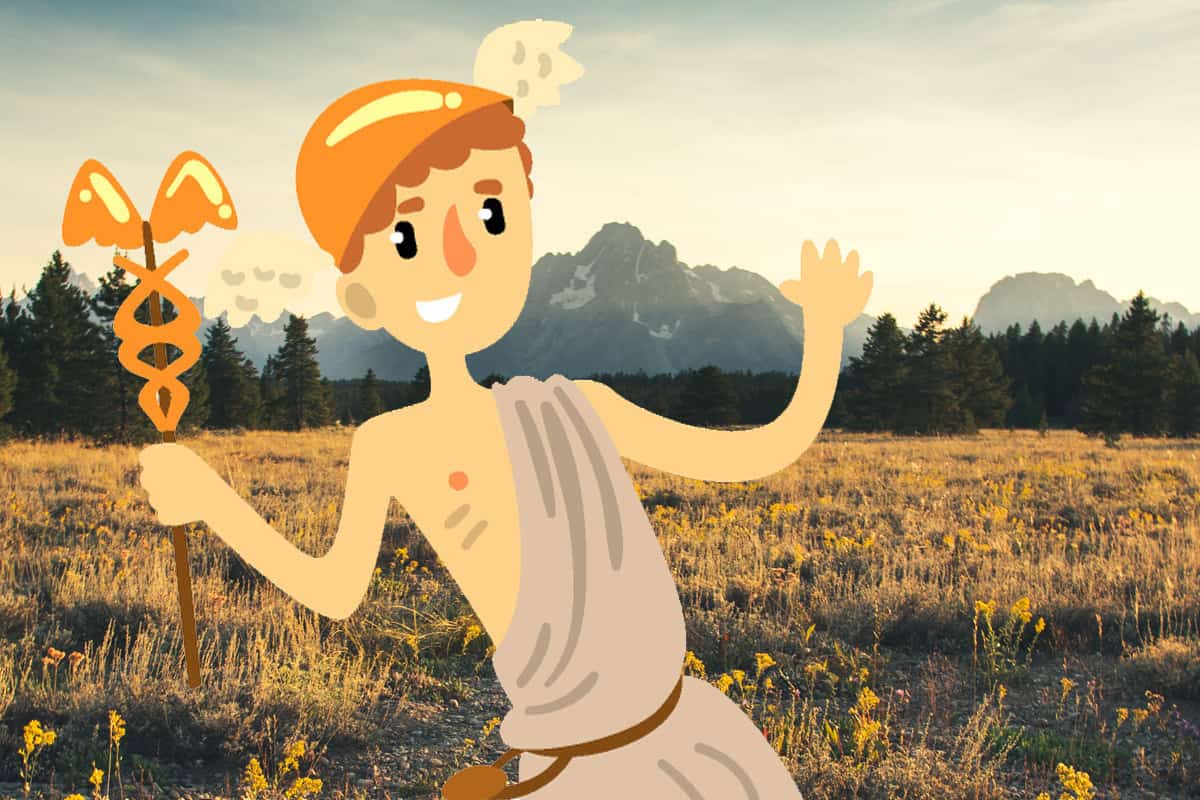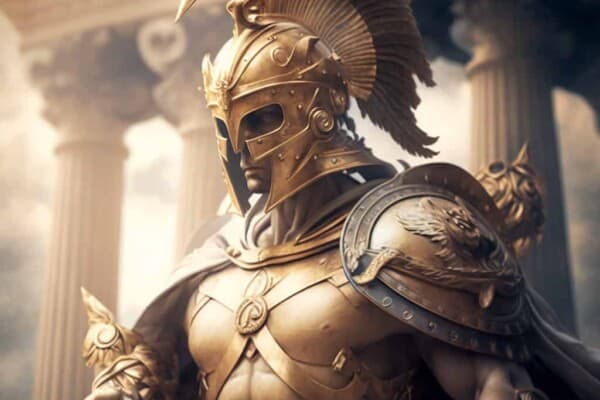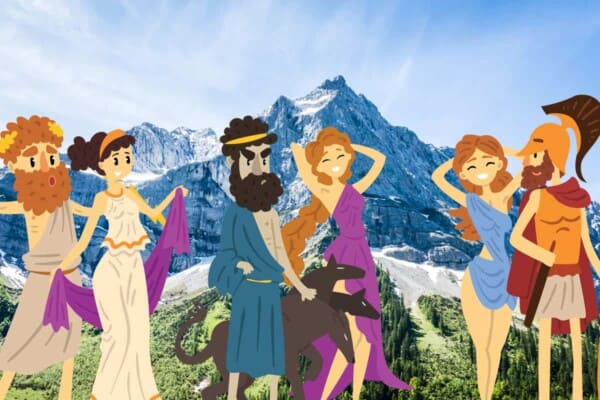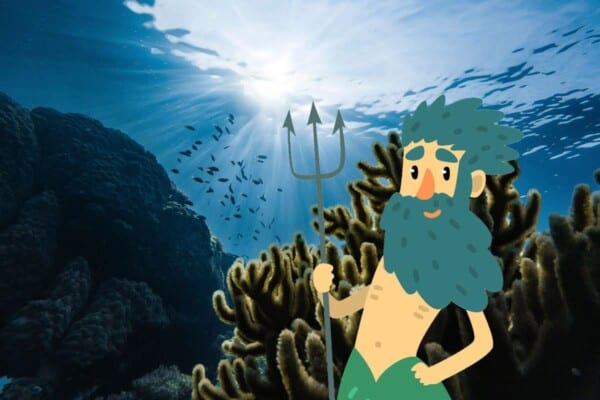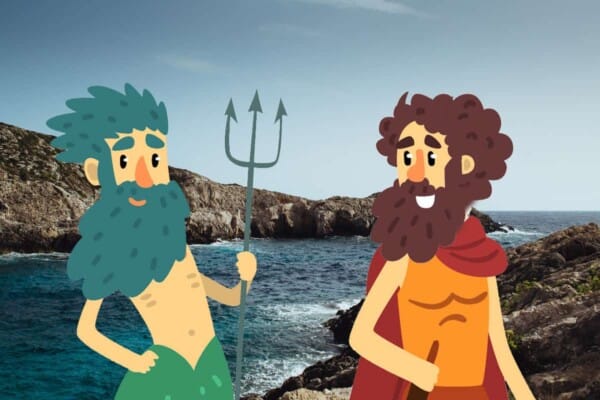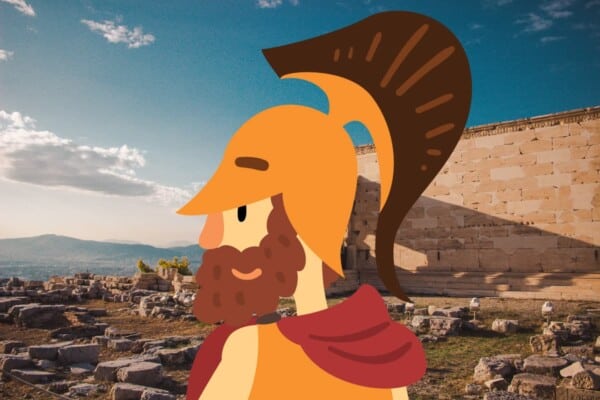Hermes was the son of Zeus and Maia. He was the god of many things including being the patron of travellers, merchants, thieves, the god of literature, and athletics. But most importantly he was the messenger god. In this capacity he was often running errands for Zeus. He was said to move very fast with the help of his winged sandals that allowed him to fly. His most famous son was the goat legged god Pan.
Hermes was believed to have a positive set of personality traits. He could be intelligent, cunning and helpful depending on the circumstance.
- Intelligent – Hermes was the god of invention. He was credited with creating the Greek alphabet, numbers, music, boxing, gymnastics, astronomy. Someone with such achievements must of course have a decent level of intelligence. He also used that intelligence to outsmart many of the gods and creatures he encountered.
- Cunning – The God was always trying to outdo his opponents. In one of the myths he is tasked with defeating the Argus monster. This 100-eyed beast was guarding over a lover of Zeus called Io. Hermes used his lyre to play the most relaxing and soothing music he could think of. One by one the eyes of the great beast closed. With this opportunity, he lunged forward and chopped off the head of the Argus.
- Helpful – When the Greek hero Perseus was tasked with killing Medusa and retrieving her head he was a little concerned. Medusa had killed everyone who had been sent to defeat her. In this moment Hermes, along with Athena, appeared to help Perseus. They gave him some gifts. Athena gave him her shield, and Hermes gifted his most prized winged shoes. Perseus was then able to fight and defeat the Gorgon monster.
Hermes Facts – Everything You’d Possibly Want to Know
- Hermes was one of the gods who had to take souls from earth to Hades. In the same way he shepherded sheep, Hermes would take these souls and guide them to the entrance of the underworld.
- Aphrodite and Hermes had an affair and the result was a child called Hermaphroditus. This god lived in a magical spring and if men were to bathe in the waters they would become highly effeminate.
- When Achilles killed Hector at the battle of Troy, he took his body back to the Greek camp. With the help of Hermes, the Trojan King Priam was able to retrieve the body of his son and return it to Troy. Back in the city, Hector was granted all the respect of a proper Trojan funeral.
- Hermes was the second youngest of all of the 12 Olympian gods and he had many half brothers and sisters including Apollo, Artemis, Athena, Ares, Persephone and Dionysus. He would help and rescue many of his siblings from different dangers.
- He was the father, along with Zeus and Poseidon, of the Greek god Orion. The story goes that all three of them urinated on a bulls hide then dug a hole in the earth and buried it. From this act was born the giant Orion who was later made into a constellation in the night’s sky.
- As the god of the language, he was said to have taught the people of earth all of the different languages that were spoken. Along with this mastery of language came the skill of persuasion. He was often said to use this skill to perform some trickery or another.
- He was credited with teaching many of the athletic sports that were played by the Greeks. In the Olympic games held by Zeus after his victory over Cronus it was said that Hermes took part in a race against Apollo, but lost.
- When Odysseus was on the stranded on an island with the sorceress Circe, it was Hermes that warned him that she had turned most of his men into pigs. It was with this knowledge that Odysseus was eventually able to escape.
- Zeus wanted to punish the world of men, so he sent a women called Pandora to cause many problems on earth. She was given many traits but Hermes gave her the traits of guile and deceitfulness. She also carried a box full of terrible evil spirits.
- Hermes is described as being a beardless graceful youth. He wore winged sandals and a winged hat. He also carried a long staff called the Caduceus.

